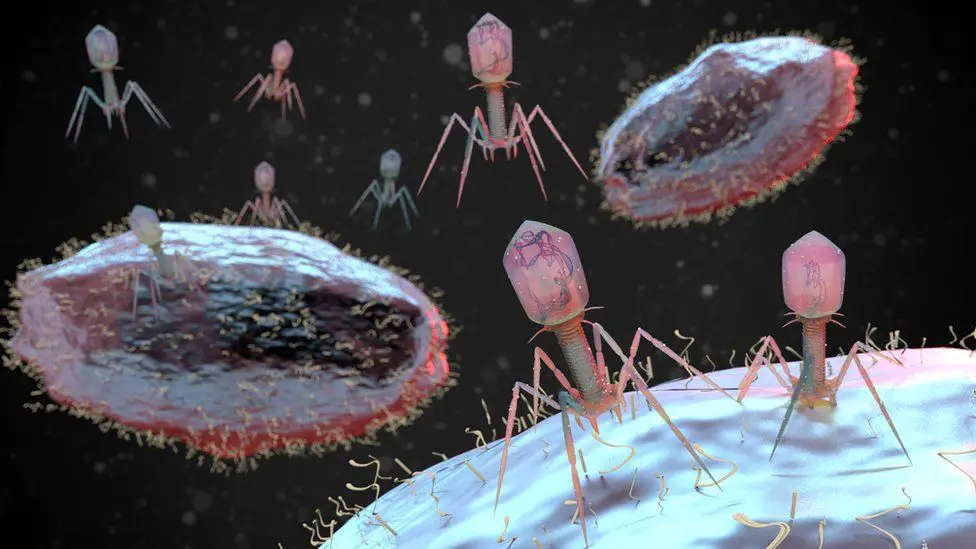
Every year, the U.S. Food and Drug Administration (FDA) issues a recall list filled with contaminated items that cause multiple foodborne illnesses, ranging from romaine lettuce to frozen falafel, due to the presence of Escherichia coli (E. coli). E. coli is responsible for an estimated 265,000 annual infections in the United States, according to the Centers for Disease Control and Prevention (CDC). To reduce outbreaks and disinfect food, researchers at McMaster University have developed a spray made up of bacteriophages, or phages, which are viruses that cannot infect human cells but can infect and destroy bacteria.
The researchers linked the bacteriophages to create microscopic beads, each about 20 microns in diameter. Together, they linked half a million bacteriophages to make each bead and constructed a community of 13 billion bacteriophages (is this cocktail or super cocktail?). The bacteriophage spray was tested on romaine lettuce and beef steaks contaminated with E. coli O157:H7, a strain of the bacteria that causes severe intestinal infections and often infects lettuce and meat. The bacteriophage spray reduced the E. coli O157:H7 by 6 logs or 99.9999%.

The bacteriophage spray is safe to use on food and does not change the taste, texture, or quality of the food. Bacteriophages are specific and only harm the target bacteria while leaving beneficial bacteria alone. Bacteriophages have been recognized as safe since 1958 by the FDA, and they are already being used in products ranging from animal feed to pet food.
The bacteriophage spray has many potential uses, such as modifying it to destroy other types of bacteria, including Salmonella and Listeria, that frequently contaminate food. It can also be used in commercial applications for food harvesting, processing, and packaging. Grocery stores can spray produce on store shelves with bacteriophages in addition to water, and bacteriophages can be added to household disinfectant products that can decontaminate everything from fresh lettuce to fruits.
Bacteriophages have the potential to reduce global foodborne diseases and save lives. The World Health Organization (WHO) estimates that 600 million people become sick after eating contaminated food, and 420,000 people die every year. Children under the age of five account for almost one-third of all illnesses, with 125,000 dying every year.



Leave a Reply
You must be logged in to post a comment.